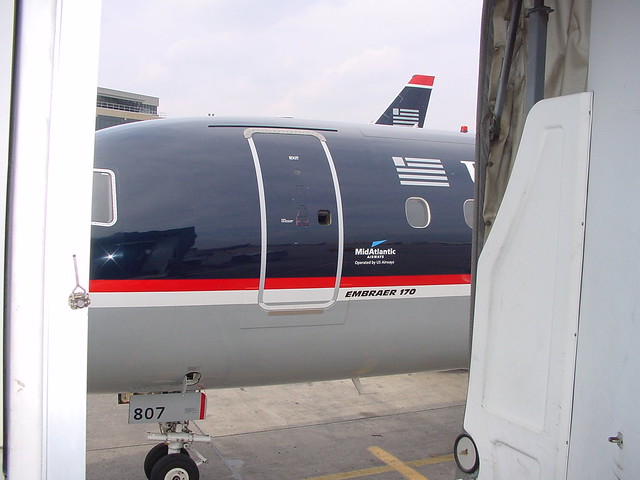Ok, suppose an airline has been around since the 1920s and today with 6,000 pilots. However, this company has stagnated and not had an active pilot hired since 1990. Assume for agument sake that the guys hired in the 90s are furloughed. Also suppose that this airline has twice been in bankruptcy and nearly liquidated.
Now suppose an airline that started in 1984. They are a smaller size than the above airline, with about 140 airplanes. This airline grew a lot, but the significant growth came in the 90s and 2000s. Therefore, the overwhelming majority of these pilots were hired in the 90s and 2000s. Their most junior Captain was hired in 1999, and the year right now is 2005. That's a 6 year upgrade. Now also suppose that this airline, for all practical purposes, merged with the company above, saving the company above from liquidation!
Now what's fair?
The previous mentioned company nearly died (liquidation) and that would have ended everyone's career. The new airline that merged with them provided the lifeline necessary to keep afloat.
For merger, only 7% of active pilots of the second airline were hired prior to 1990. The majority, ~ 93% were hired after 1990. For the other airline, the majority (8-90% were hired before 1990) and assume that all their guys hired after 1990 were furloughed.
So according to your model of pure DOH, you are stapling the second airline. 93% would be placed under the entire other pilot group, effectively downgrading every single Captain and pushing the curren FOs even further. Is that "fair"?
Now consider original airline almost liquidated twice and WOULD have liquidated had the merger with the newer airline not happened. How does that come into play?
Also consider the 1990 furloughees at older airline. They haven't flown, they were hired, and furloughed. Some of them might not even be flying! You are going to give them DOH credit? For what? Never having flown at that airline?
Sorry, but these are (mostly) facts about the US Airways and AWA merger. A straight up DOH is a windfall, and that is not allowed. In any merger, because seniority varies greatly across different airlines, "career expectations" are suppose to be protected. That's why arbitrators do not use straight up DOH in their arbitration cases.
. There were some fences for the 777's and 747s. The issue that USAPA is going to have when they make their argument is that they have practically no wide body airplanes.

